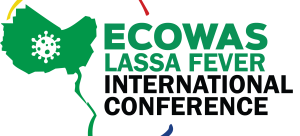West African leaders, scientists, and health officials have gathered in Abidjan, Côte d’Ivoire, for the 2025 Lassa Fever International Conference (LIC) — an event positioned not just as a medical summit, but as a turning point in the region’s fight against epidemics.
Organised by the West Africa Health Organisation (WAHO), the four-day gathering carries the theme “Beyond Borders: Strengthening Regional Cooperation to Combat Lassa Fever and Emerging Infectious Diseases.” Its message is clear: West Africa can no longer afford fragmented approaches to public health threats.
From Outbreak Response to Long-Term Preparedness
Unlike past gatherings that focused largely on emergency response, LIC 2025 aims to establish a regional framework for prevention, preparedness, and resilience. Discussions are centred on scaling up diagnostic access, vaccine research, and coordinated cross-border interventions.
Experts argue that this shift is critical. Lassa fever, first identified in Nigeria more than five decades ago, continues to resurface each year, stretching health systems already burdened by malaria, Ebola, and other infectious diseases. By uniting under a regional plan, stakeholders hope to close gaps in surveillance, laboratory infrastructure, and rapid response.
Integration as a Strategy
Participants are also advancing a One Health approach, linking human, animal, and environmental health. This perspective acknowledges the interconnected factors driving outbreaks and underlines the need for a comprehensive, multi-sectoral response.
A Regional Model for Global Health Security
Organisers stress that the lessons from LIC 2025 extend beyond Lassa fever. By developing sustainable structures for epidemic control, ECOWAS states are positioning themselves as a model for regional cooperation in global health security.
The conference brings together voices from across Africa and beyond — not just to debate policy, but to chart a roadmap that ensures West Africa is better equipped for the next epidemic, not just the current one.

